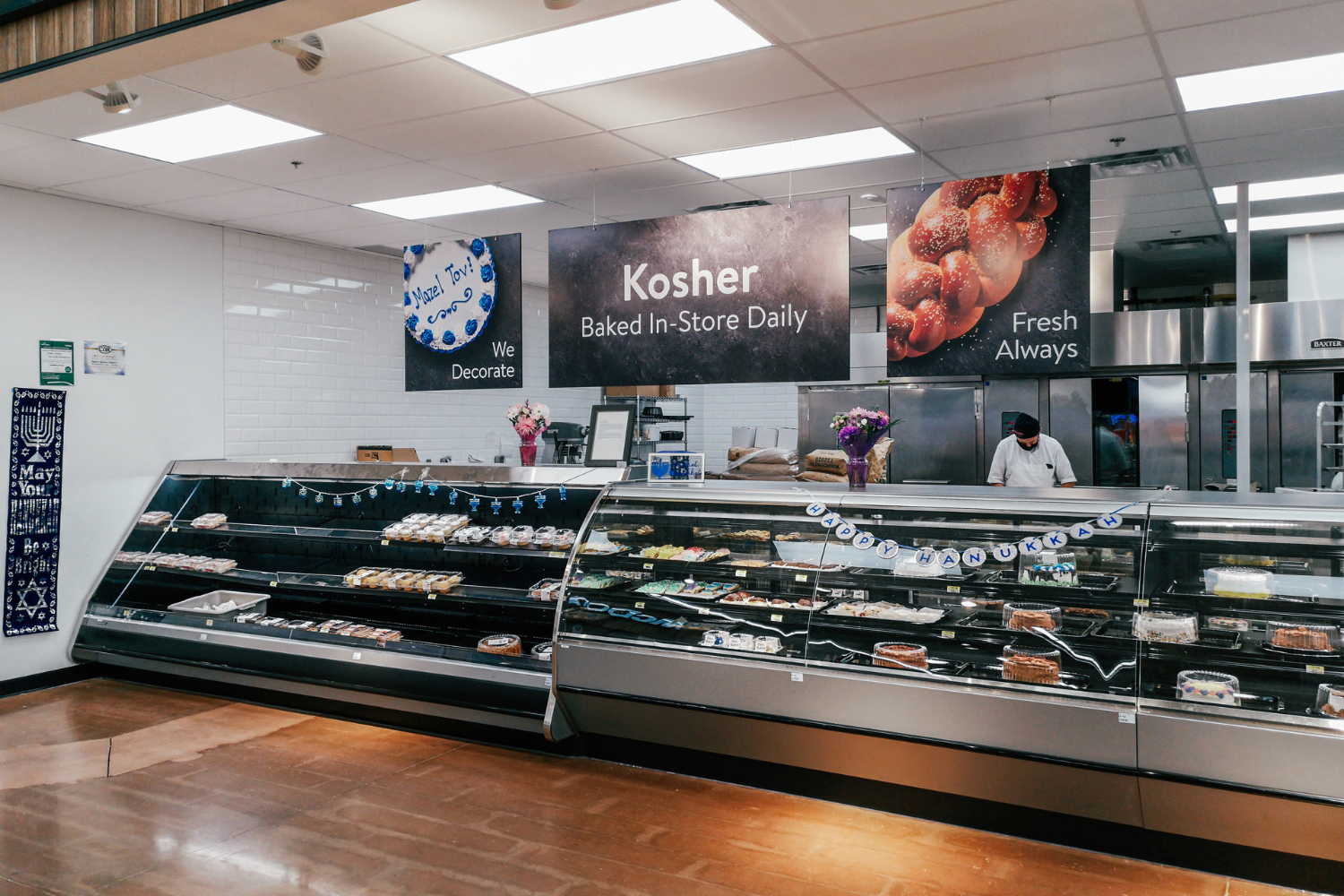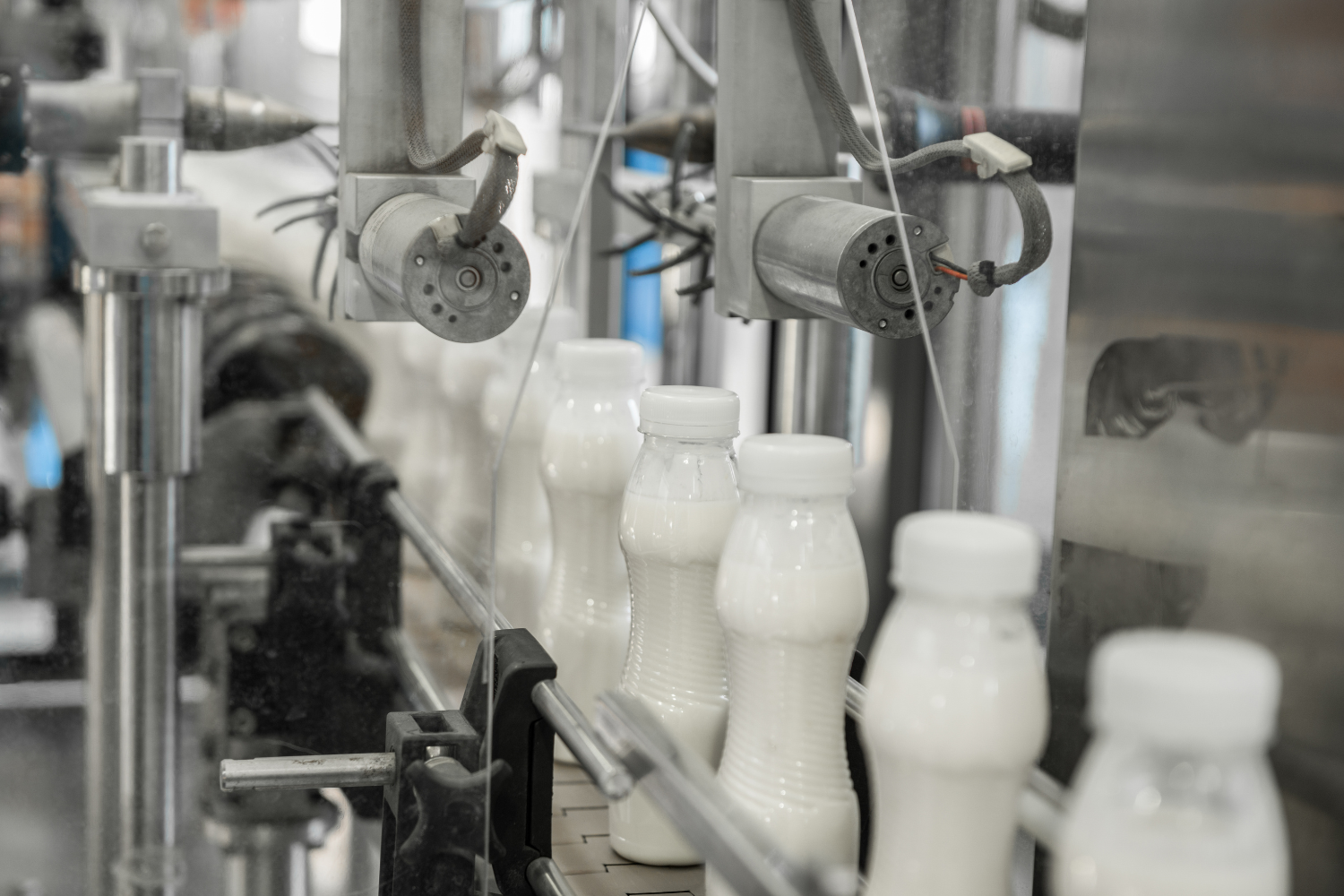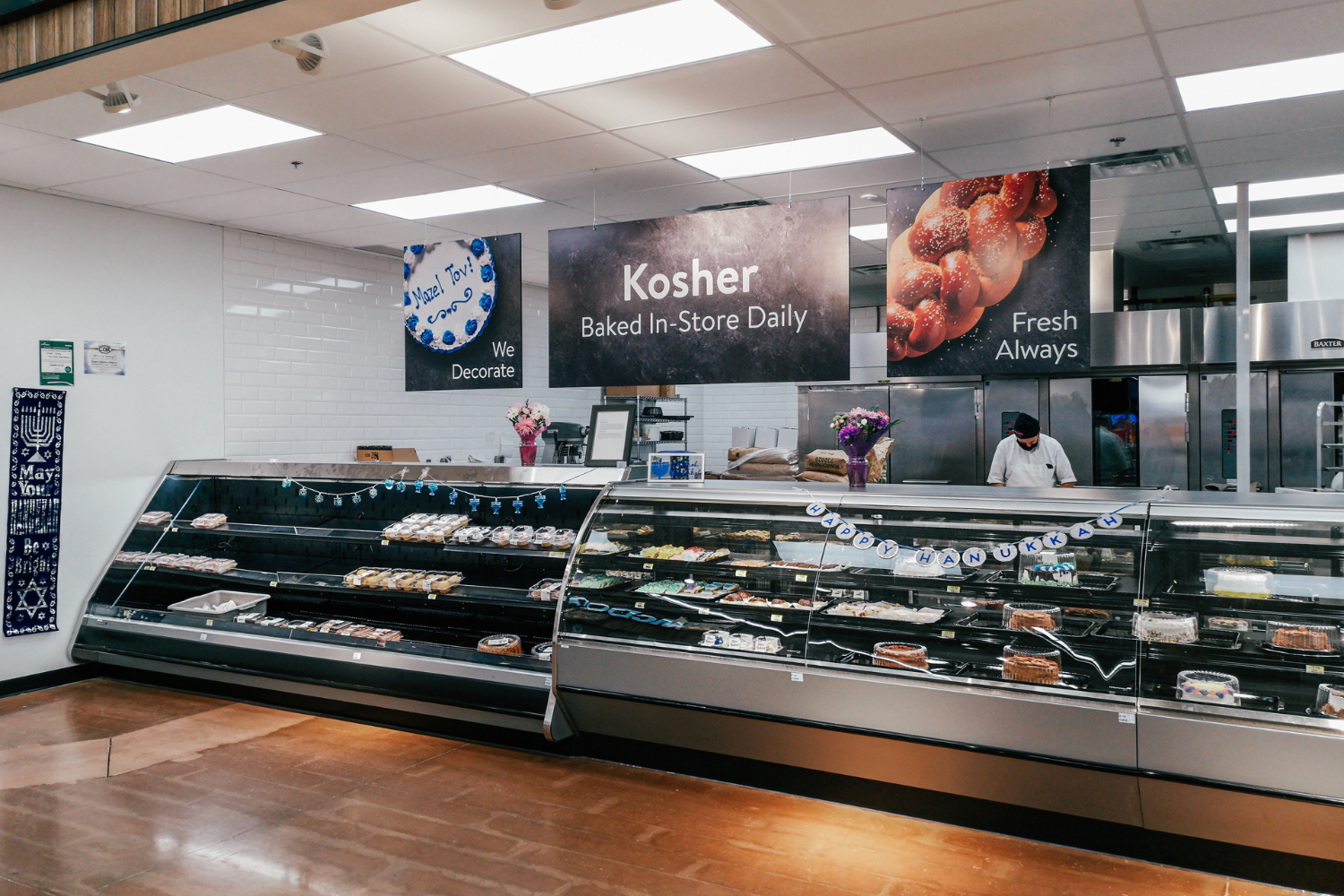Kosher certification signifies that a product complies with Jewish dietary laws, ensuring it meets strict standards outlined in kashrut. This certification has become a trusted symbol of quality and safety, appealing not only to Jewish consumers but also to health-conscious individuals and international markets.
The demand for kosher-certified products continues to grow, driven by consumers seeking transparency and adherence to specific dietary requirements. This guide provides businesses with a clear understanding of the kosher certification process, the requirements involved, and the opportunities it unlocks in expanding market reach and consumer trust.

Table of Contents
ToggleWhat Does Kosher Certified Mean for Your Business?
Kosher certification verifies that a product, ingredient, or production facility complies with Jewish dietary laws, known as kashrut. These laws detail which foods are permissible, how they must be prepared, and under what conditions they can be produced. A kosher-certified product undergoes thorough inspection and approval by a kosher certification agency to confirm compliance with strict requirements. This process often involves reviewing raw materials, production methods, and equipment to ensure adherence to kosher laws.
Kosher certification is more than a religious standard—it indicates compliance with specific dietary standards valued by diverse consumers. For businesses, this certification signals clean production processes, high standards, and transparency in ingredient sourcing. It appeals to Jewish consumers, health-conscious buyers, and others who value clean labels and reliable ingredients. Achieving kosher status can broaden your product’s appeal and strengthen its position in competitive markets.

Why Should Your Business Get Kosher Certified?
Obtaining kosher certification offers businesses significant advantages, including access to a larger consumer base, enhanced credibility, and compliance with retail and export requirements.
Expand Your Market Reach
The global kosher market is substantial and continues to grow, driven by demand from diverse consumer segments. Achieving kosher certification allows businesses to access diverse consumer segments, including Jewish communities, health-conscious individuals, vegetarians, and those with specific dietary preferences. Kosher products, especially those certified for Passover, are sought after during specific cultural and religious observances, making certification a strategic move to reach new customers.

Build Consumer Trust and Credibility
Products with a kosher label indicate adherence to strict dietary guidelines and careful production processes. Certification demonstrates that your products meet the standards of Jewish dietary laws for ingredient sourcing, handling, and preparation. This transparency fosters consumer confidence, encouraging repeat purchases and long-term brand loyalty.
Gain a Competitive Edge
Kosher certification helps your products stand out in crowded markets, particularly in supermarkets and specialty stores. The kosher label is a valuable differentiator, signaling quality and adherence to high production standards. For brands aiming to compete in premium markets, certification is a tool for establishing credibility and drawing attention.
Meet Retail and Export Requirements
Retailers, wholesalers, and international markets often require kosher certification before stocking products. Many supermarket chains and distributors prioritize certified kosher products to meet consumer demand. For companies looking to expand into global markets, certification ensures compliance with requirements and improves export opportunities.
Which Products Can Be Kosher Certified?
Kosher certification applies to a wide range of products, confirming their compliance with Jewish dietary laws. Many categories of goods can qualify, helping businesses ensure their offerings meet kosher requirements and appeal to a broader audience.
- Food Products: Meat, dairy, snacks, beverages, spices, baked goods, and condiments.
- Supplements and Ingredients: Protein powders, vitamins, and ingredient blends, including gelatin-free capsules.
- Beverages: Juices, energy drinks, wines, and water.
- Personal Care Products: Skincare, cosmetics, and hygiene items made with kosher-approved ingredients.

What Are the Kosher Certification Requirements?
Kosher certification requirements focus on permissible ingredients, equipment, facilities, proper handling, and consistent record-keeping to maintain compliance with Jewish dietary laws.
Permissible Ingredients
Kosher-certified products must contain only ingredients that meet kosher standards. Non-kosher additives or components are strictly prohibited.
Non-kosher ingredients include:
- Pork and pork-derived products.
- Shellfish and certain other seafood.
- Additives like gelatin from non-kosher animals or sources.
- Milk and meat combined in any form.

Equipment and Facilities
Equipment used for kosher production must be cleaned thoroughly or dedicated exclusively to kosher processes. Any equipment previously used for non-kosher production requires kosherization, a process to remove traces of non-kosher substances.
Meat and dairy production lines must remain entirely separate. This includes utensils, storage areas, and production equipment, ensuring compliance with kosher laws. Facilities must be organized to avoid any cross-contamination.
Proper Handling and Inspection
Facilities seeking kosher certification are subject to rigorous audits and inspections by a kosher certifying agency. Representatives from the rabbinic field ensure that all production processes align with Jewish dietary laws. This includes examining raw materials, observing production methods, and verifying adherence to kosher handling practices.
Consistent Record-Keeping
Maintaining detailed records of ingredient sourcing, production processes, and product handling is crucial for businesses aiming to retain kosher certification. Documentation supports regular audits and helps confirm compliance over time. This includes tracking kosher-approved raw materials and ensuring proper labeling and separation of kosher and non-kosher products throughout the supply chain.
How to Get Kosher Certified: Step-by-Step Process
The kosher certification process involves several steps to ensure that your products and facilities comply with Jewish dietary laws. Following this structured approach will help you navigate the certification process smoothly.
Step 1: Choose a Kosher Certifying Agency
Select a reputable kosher certification agency that aligns with your product category and market goals. Different agencies specialize in specific industries, so it’s important to research and choose wisely.
Reputable agencies include:
- OU (Orthodox Union)
- Kof-K
- Star-K
- OK Kosher
Tip: Review the agency’s reputation and scope of recognition to ensure it meets your business needs.
Step 2: Initial Consultation and Application
Begin the process by submitting an application to your chosen certifying agency. This application typically requires details about your products, ingredients, production methods, and facility setup.
After submission, the agency will discuss your business’s costs, timelines, and specific requirements. This step establishes a roadmap for achieving kosher certification based on your unique needs.
Step 3: Facility Inspection
A kosher inspector, known as a mashgiach, will conduct an on-site inspection to evaluate compliance with kosher requirements.
Inspectors will examine:
- Ingredient sourcing and documentation.
- Equipment and production facilities.
- Manufacturing and handling processes.

Step 4: Compliance Adjustments
If adjustments are required to meet kosher standards, the certifying agency will provide recommendations. This step ensures that your product and facility comply with kosher laws.
Common adjustments include:
- Replacing non-kosher ingredients with kosher-approved alternatives.
- Implementing cleaning processes or dedicating equipment exclusively for kosher production.
Step 5: Certification Approval
Once all compliance measures are verified, the certifying agency will issue your kosher certification. This allows you to display the kosher symbol (hechsher) on your products, packaging, and marketing materials, signaling that they meet kosher standards.
This certification boosts consumer trust and opens opportunities in new markets.
Step 6: Ongoing Audits and Compliance
Kosher certification requires ongoing compliance, with regular inspections to ensure adherence to Jewish dietary laws. Certifying agencies typically perform audits on a scheduled basis to confirm that production processes and ingredient sourcing remain consistent.
Tip: Keep accurate records of ingredient sourcing, equipment usage, and production practices to streamline the audit process and maintain certification.
How Much Does Kosher Certification Cost?
The cost of kosher certification varies based on several factors, including the complexity of your product and the size of your operation.
Factors That Affect Costs:
- Product complexity.
- Facility size and number of products.
- Frequency of inspections required.
General Cost Breakdown:
- Application fees: Initial cost to begin the certification process.
- Inspection fees: Fees for facility evaluations by the certifying agency.
- Annual certification fees: Ongoing costs to maintain certification.
Although there is an upfront investment, achieving kosher certification can significantly enhance market reach, boost sales, and provide a strong return on investment.
Common Challenges Businesses Face with Kosher Certification
While achieving kosher certification offers significant benefits, businesses may encounter challenges during the process. Addressing these obstacles with the right strategies is essential for success.
- Ingredient Sourcing: Finding kosher-approved alternatives for non-compliant ingredients can require research and supplier collaboration.
- Production Adjustments: Maintaining separate equipment and facilities for dairy, meat, and pareve (neutral) products ensures compliance with kosher laws.
- Understanding Regulations: Navigating the complexities of kosher requirements can be difficult without proper guidance.
Tip: Partner with kosher consultants or certification agencies to simplify the process and ensure compliance.

Why Your Business Should Pursue Kosher Certification
Kosher certification offers businesses a unique opportunity to expand market reach, build consumer trust, and gain a competitive advantage in a crowded marketplace. Meeting the growing demand for kosher-certified products allows companies to appeal to diverse consumer segments while demonstrating commitment to quality and transparency. Take the next step in achieving kosher certification by contacting a reputable kosher certifying agency and starting the process today.
Frequently Asked Questions
How Long Does It Take to Get Kosher Certified?
Depending on facility readiness and product complexity, the process can take 4-8 weeks.
Can a Single Product Be Kosher Certified?
Yes, businesses can certify individual products or their entire facility.
Does Kosher Certification Apply to Supplements?
Yes, supplement brands can achieve kosher certification by ensuring all ingredients and capsules comply.
How Do Consumers Recognize Kosher Products?
Look for a kosher certification symbol (e.g., OU, OK, Star-K) on the packaging.
Why Is Kosher Certification Important for Businesses?
It expands market reach, builds consumer trust, and meets retail and export requirements.
References
- Jewish Virtual Library. (n.d.).Overview of Jewish Dietary Laws & Regulations. https://www.jewishvirtuallibrary.org/overview-of-jewish-dietary-laws-and-regulations
- Orthodox Union. (n.d.). Kosher Food: The Kosher Primer. https://oukosher.org/the-kosher-primer/
- Star-K Kosher Certification. (n.d.). STAR-K: Kosher Certificates | Kosher Certification. https://www.star-k.org/
- Star-K Kosher Certification. (n.d.). Passover. https://www.star-k.org/passover
- United States Department of Agriculture. (n.d.). Supporting Kosher and Halal-Observant Communities Through TEFAP. https://www.fns.usda.gov/tefap/supporting-kosher-and-halal-observant-communities




